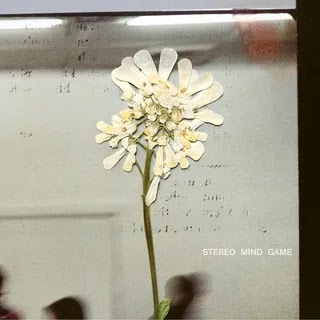The moody London indie folk trio return with a stripped-back record inspired by long-distance longing.
For a microgeneration of angsty teens, the music of London indie folk trio Daughter was a formative soundtrack to aimless Tumblr scrolling and late nights aching for connection. In particular, the band’s 2011 breakout “Youth” provided solace to struggling adolescents with its trembly vocals and tormented lyrics comparing romantic disappointment to “heaving through corrupted lungs.” Their raw emotionality and billowing, gothic production would go on to influence future critical darlings like Julien Baker and Ethel Cain; Cain fell for the band’s live performances, while Baker praised the wilder, denser 2016 follow-up Not To Disappear on the Talkhouse.
After a video game score and a record from frontwoman Elena Tonra’s side project Ex:Re, the band scales back for its third proper album Stereo Mind Game. Inspired by Tonra’s long-distance relationship, the album wrestles with connection and distance. On the jaunty, cinematic “Swim Back,” Tonra longs for more straightforward communication, scheming to “find a hole in the ocean” to travel to her lover. On “Be On Your Way,” she relinquishes ownership of them and vows to meet in other circumstances. She becomes a reluctant optimist: On a previous record, a line like “I have a feeling we’ll repeat this evening” would be a fatalistic concession to toxic patterns, but now, it’s an earnest promise to a lover.
In contrast to the bluster of Daughter’s first two records, Stereo Mind Game at times can feel undercooked; an antsier arrangement on the relatively restrained “Dandelion” would better pair with the song’s when-will-they-text-back anxiety. But elsewhere, the embrace of negative space helps the individual elements hit harder. On “Party,” the simple guitar strokes and drum beats help foreground Tonra’s tense writing: “I could stop if I want, I just don’t want to yet/I’ll creep the volume up, I’ve got to drown myself out,” she sings about her relationship to alcohol.
While Daughter’s past work could tend toward depressive myopia, Tonra stretches herself as a writer on Stereo Mind Games. On the percussive, almost-spoken-word track “Junkmail,” she leans toward Florence Shaw and away from Florence Welch, flatly intoning observations like “You can’t edit the scenery to view it better” and “Should I pay for viewing your faint lookalike?” The ticking ballad “Future Lover'' winds up the best song on the record by dialing down on doomy imagery and adding a singalong chorus. The smaller stakes of Stereo Mind Games feel healthier and rewarding; the music is still vulnerable, but anguish no longer consumes every moment.



0 comments:
Post a Comment